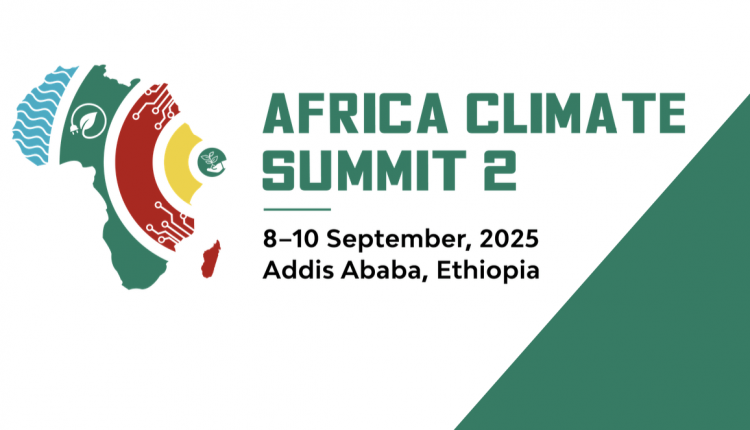Ethiopia and AUC rally continental climate agenda in run-up to ACS2
Addis Ababa, July 31, 2025 (FMC) — The Government of Ethiopia and the African Union Commission have jointly reaffirmed their commitment to advancing African-led climate solutions and closing the continent’s climate finance gap during a high-level virtual media briefing held today ahead of the Second Africa Climate Summit (ACS2).
It is noteworthy that the ACS2 is scheduled for September 8–10, 2025, in Addis Ababa.
Ethiopia’s State Minister of Planning and Development, Seyoum Mekonnen, highlighted his country’s ongoing climate leadership, citing initiatives such as the Green Legacy, which has planted close to 46 billion seedlings until today since 2019, and regional energy interconnections with neighboring countries.
“Ethiopia is not only self-sufficient in renewable energy, but also emerging as a continental leader in e‑mobility and green transformation,” he said.
Describing the summit as “an African moment to lead,” Mekonnen noted its dual pillars: showcasing African climate solutions and unlocking scalable climate finance. “This is not just another event. It is a platform for bold ideas, climate justice, and a collective movement,” he said, projecting participation from 45 heads of state and government, civil society, youth leaders, private sector representatives, and the media.
Speaking at the briefing, Moses Vilakati, African Union Commissioner for Agriculture, Rural Development, Blue Economy and Sustainable Environment, hailed Ethiopia’s leadership in preparing for the summit and stressed the importance of regional ownership and inclusivity.
“The ACS2 is our opportunity to transform visionary climate commitments into tangible, scalable solutions,” he said.
Vilakati emphasized that while Africa contributes the least to global greenhouse gas emissions, the continent remains the most climate-vulnerable.
He outlined ambitious targets, including tripling renewable energy capacity to 300 gigawatts by 2030 and achieving 90% renewable energy generation by 2050.
Yet, he warned that “Africa faces a significant climate finance gap,” with only $30 billion received between 2021 and 2022 out of the $3 trillion needed. “Only 18% of adaptation needs and 20% of mitigation are currently funded,” he noted, calling for stronger collaboration across governments, private sectors, and international partners.
Abas Mohammed, Co-chair of the ACS2 Program Committee, detailed the summit’s structure, stating it was “intentionally designed to center African-led and community-based adaptation strategies” and scale up models with global relevance such as large-scale reforestation, renewable energy, and nature-based solutions.
Mohammed said the summit will also push for systemic reform of the global climate finance architecture. “The current system is failing Africa. Adaptation and resilience must be funded primarily through grants and concessional financing, not loans,” he said.
He added that the summit will advocate for mechanisms like debt relief, blended finance, and a fair share of climate finance aligned with Africa’s Nationally Determined Contributions (NDCs).
More than 56 official events are planned around ACS2’s central themes of nature, innovation, and finance.
The organizers called on journalists to shape global narratives about Africa—not just as a victim of climate change, but as a leader in solutions. “You are not just observers. You are influencers,” said Mekonnen. “Let this be the summit where Africa is no longer seen as waiting to be served, but as leading the way forward.”
ACS2 builds on the momentum of the inaugural summit held in Nairobi and aims to present a unified African position ahead of COP30, UNGA, and the G20.

